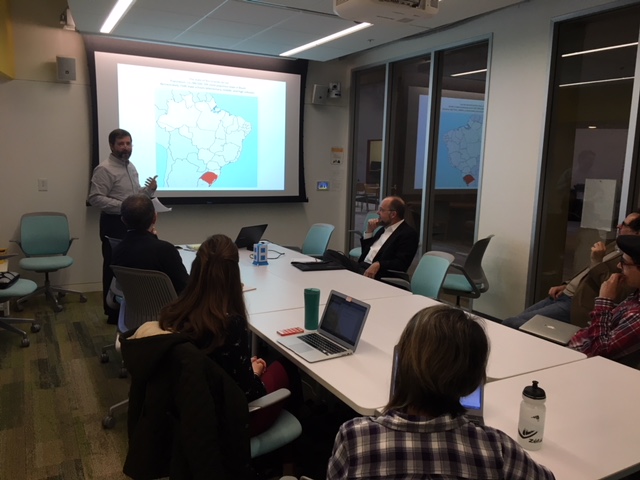An analysis of the Sistema Estadual de Avaliação Participativa (SEAP or State System of Participatory Evaluation) in the state of Rio Grande do Sul, Brazil (2012-2014)
EDUC404 Topics on Brazilian Education
An analysis of the Sistema Estadual de Avaliação Participativa (SEAP or State System of Participatory Evaluation) in the state of Rio Grande do Sul, Brazil (2012-2014)
Date:
Tuesday, March 6, 2018 - 9:00am to 10:15am
Visiting Scholar Luis Gandin will offer a preliminary analysis of the Sistema Estadual de Avaliação Participativa (SEAP or State System of Participatory Evaluation). This policy was funded by The World Bank and it was part of an initiative of the state’s Department of Education to promote institutional assessment of the whole state educational system (including the approximately 2,550 schools, the 30 regional coordination structures and the state’s Department of Education itself). What set it appart from other policies is the fact that, rather than focusing solely on the evaluation of students’ learning through standardized tests (something that is already done by the national exams), SEAP required the active participation of the actors involved in the educational system in the assessment of its quality, including all teachers, students, parents, staff and administrators. SEAP had the goal of widening the conception of education assessment and analyzing the implementation of this policy has the potential of bringing new important elements to the ever-important discussion of how to measure educational quality in public schools in Brazil and elsewhere.

Análise do Sistema Estadual de Avaliação Participativa (SEAP) do estado do Rio Grande do Sul (2012-2014)
A apresentação oferecerá uma análise preliminar do Sistema Estadual de Avaliação Participativa (SEAP). Esta iniciativa foi financiada pelo Banco Mundial e fazia parte de um esforço da Secretaria Estadual de Educação para promover a avaliação institucional de todo o sistema educacional estadual (incluindo aproximadamente 2.550 escolas, as 30 coordenações regionais e a própria Secretaria de Educação). O que a diferencia de outras políticas é o fato de que, ao invés de se concentrar unicamente na avaliação da aprendizagem dos estudantes através de testes padronizados (algo já feito pelos exames nacionais), o SEAP exigiu a participação ativa dos atores envolvidos no sistema de educação na avaliação de sua qualidade, incluindo todos os professores, alunos, pais, funcionários e funcionários. O SEAP teve como objetivo ampliar a concepção de avaliação educacional e analisar a implementação desta política tem o potencial de trazer novos elementos importantes para a discussão sempre importante de como medir a qualidade educacional nas escolas públicas no Brasil e em outras realidades.

